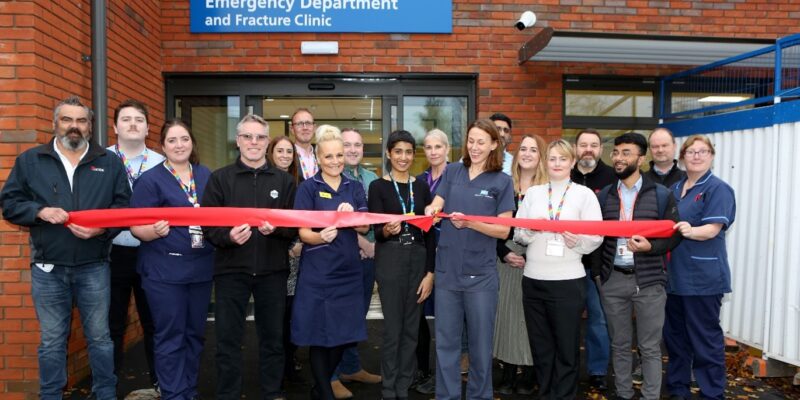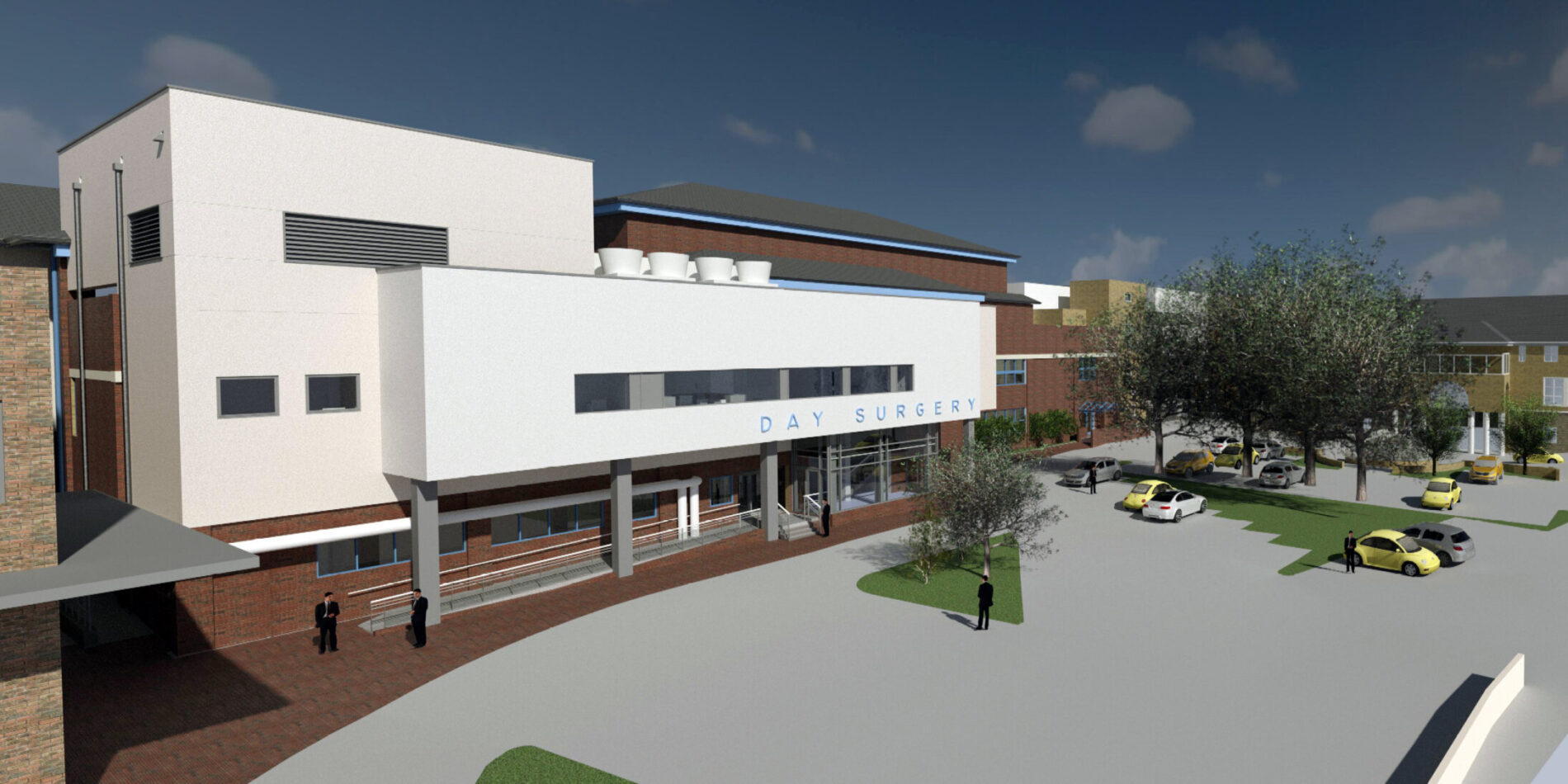Summary
Framework/Partnership // SBS Framework & Strategic Partnership
Project Type // Newbuild & refurbishment
Date Complete // Ongoing
As a strategy to reduce unwarranted variation in clinical quality and drive efficiency with service delivery Gloucestershire Hospitals NHS Foundation Trust (GHFT) have undertaken development of the ‘Gloucestershire Strategic Site Development’ project (GSSD), the objectives being to improve both non-elective and elective care by streamlining emergency and urgent care, increasing capacity to manage urgent and emergency patients, the provision of an acute medical unit, and improved inpatient wards, improving theatre capacity and day surgery pathways. The GSSD incorporates 6 projects across the Gloucestershire Royal Hospital (GRH) and Cheltenham General Hospital (CGH) sites.
The Trust were awarded funding for capital development through the Wave 3 Sustainability and Transformation Partnership (STP) bid. Spanning an end-to-end service, the exi multi-disciplinary team supported the Trust through a successful SOC/OBC/FBC process and are now leading in the delivery of the project throughout the construction phase and handover.
Service
Commissioned via the NHS SBS Framework exi were appointed by GHFT as Strategic Partners to provide strategic support in response to the Trust securing funding through the Wave 3 Sustainability and Transformation Partnership (STP) bid.
In delivering the SOC, OBC & FBC – exi provided Strategic and Technical Advisory, Project Management, Clinical Planner and Operational Brief Manager, Design and authored the Business Cases to ensure compliance with NHSI/e criteria, HMT green/blue book and Capital investment guidance. exi supported and led the delivery of the project through the P22 framework – from advising and supporting the Trust on the appointment of the PSCP through to successful completion and approval of the FBC in June 2021.
The exi multi-disciplinary team lead the Trust through an extensive options appraisals process during the OBC, managing and balancing the Trusts operational needs within the timeframe and budget available. The outcome of this process has led to design proposals which achieve the aspirations and objectives of the GSSD project brief, whilst promoting alternative approaches to service delivery which had not been initially considered by the Trust.
Design proposals include the refurbishment & significant extension to Gloucestershire Royal Hospital’s Emergency Department, refurbishment and expansion of the existing Acute Medical Unit, the provision of an improved Ambulatory Emergency Centre and its relocation to a more appropriate location within the estate. Provision of improved bed stock through re-appropriation and refurbishment of previously converted ward space. The existing theatre provision at Cheltenham General Hospitals is to be upgraded. The construction of 2No new theatres and improved flows will allow repatriation of currently outsourced theatre activity. This is supported through the delivery of an integrated Day Surgery Unit increasing the capacity and providing its own distinct identity and entrance.
Having ‘broken ground’ in September 2021 – exi are taking a leading role in supporting the Trust through the Construction phase, providing roles such as Technical Advisor, NEC Project Manager, contract administration and NEC Supervisor for building fabric and MEP components. Our exi Supervisor Team, appointed at RIBA Stage 5 on behalf of the Trust, are working in collaboration with the Project Manager, client team and the contractor to ensure quality in construction for the Trust. Our approach is collaborative and seeks to transfer knowledge and requirements directly to the contractor’s supervisors rather than at a management level.
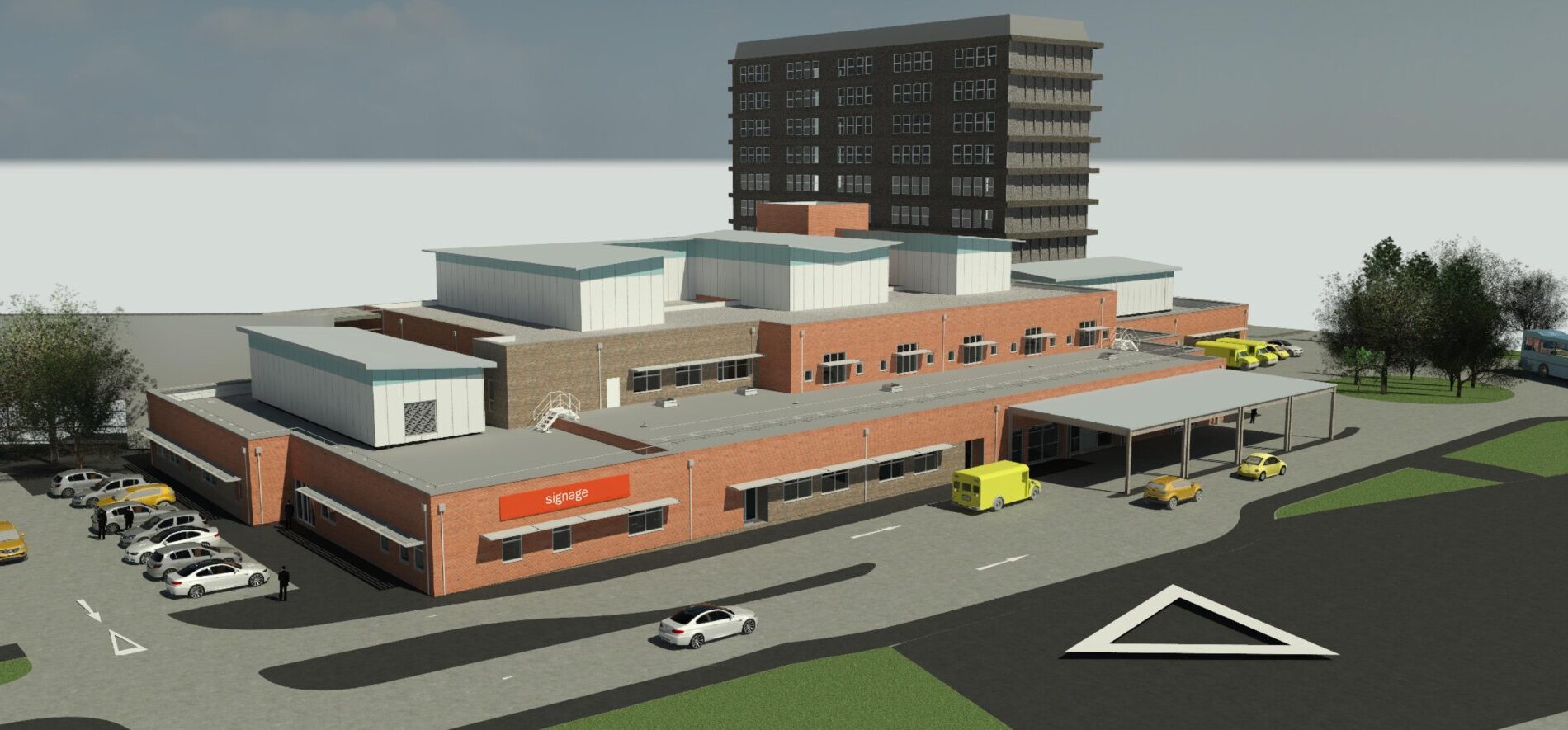
As part of our Supervisor services, we regularly inspect construction activities and cross check compliance with the Works Information, technical submissions, and healthcare standards. The role includes witness of any ongoing tests, production of monthly reports outlining progress against programme, quality issues and defects, highlighting any health and safety issues.
Our Principal Designer was engaged throughout the RIBA stages, assisting in the pre-construction project phase, and advising on all aspects of health and safety, project implementation and ensuring all parties are aware of their statutory responsibilities. We have added value in the multi-phase construction elements by ensuring design risk is properly manged by the contractor, reviewing buildability, and future maintenance requirements at each stage.
The development of a positive H&S culture has been actively encouraged throughout the team. We strive to instil a culture of ownership, responsibility and accountability from all parties concerned. The project team ensure adequate time is made for considered H&S reviews within the overall Programme as well as for H&S matters to be discussed within meetings, and that a robust, regular, and considered approach to risk management is maintained throughout the project.
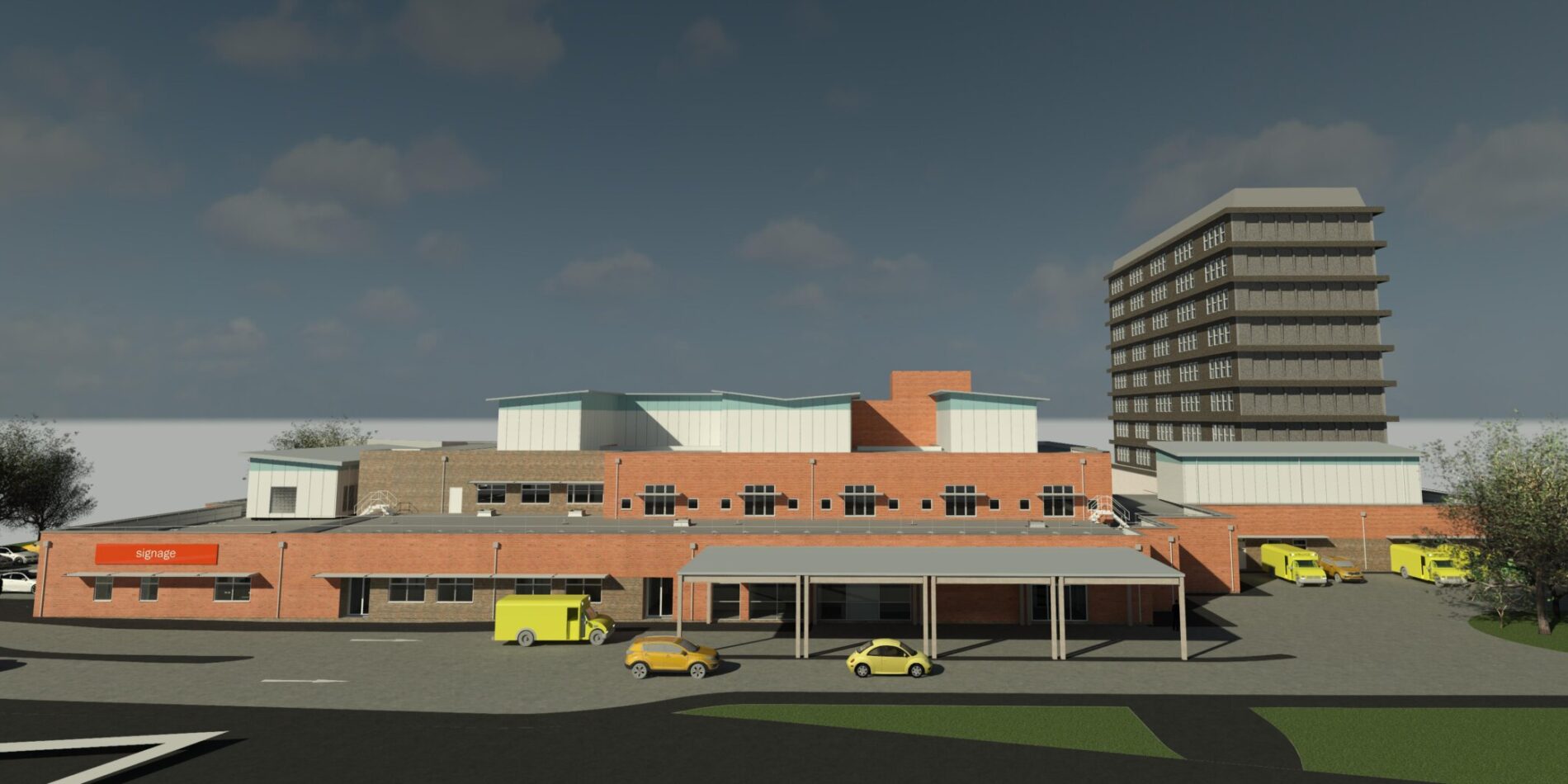
Outcomes
A key lesson brought to this project is the need for robust Service and Clinical planning to frame the requirements and deliverables for the project. The exi Healthcare Planning team delivered this through close engagement with key stakeholders and user groups to understand, check and challenge current processes and assumptions and providing recommendations and promoting alternative service models. Accurate analysis of Trust operational data provided the healthcare planner with the necessary base information to be able to develop operational polices and schedules of accommodation – both paramount in framing the Project Brief and providing a robust baseline to inform the successful development of the design solution. This level of engagement was continued through the detailed stages of design therefore maintaining stakeholder support and involvement and in turn leading to informed sign off and prompt approval at gateways.
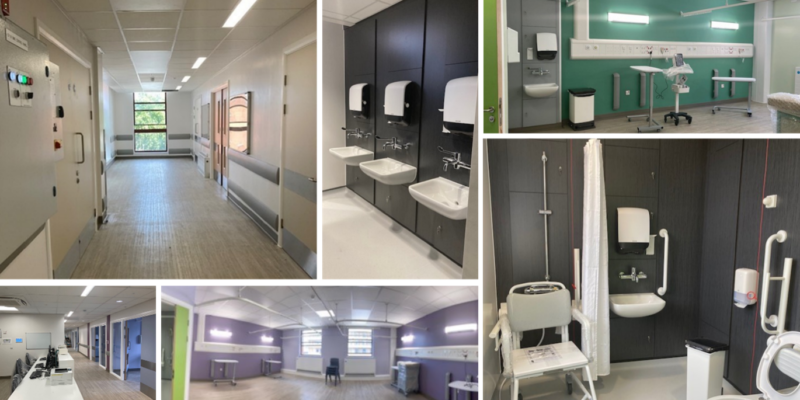
A key success factor in the delivery of the GSSD Project is the robust level of planning and engagement undertaken with varied stakeholders and User Groups. Structured and focused engagement sessions are being programmed throughout the project journey to maintain the successful buy-in from all project stakeholders, to ensure that project objectives are met, and the Trust can provide the high-quality service to staff, patients and visitors which is delivered in an appropriate and high-quality environment.
Following the successful completion and approval of the SOC, OBC & FBC Gateways, the Trust have moved at pace into the delivery of the construction phase, The Trust are now delivering the largest Capital Investment undertaken on site achieving the first significant step on their Estates Strategy and Development Control Plan and aligning with their Fit for the Future 10-year Programme.
